Digital Rights and Literacy
We advocate for an open, accessible and inclusive internet. We are in favour of encryption, data justice, and open source solutions. We champion digital sovereignty and the responsible development and use of artificial intelligence.
Digital technologies and the internet have become an integral part of the modern world of networking, the exchange of ideas and the procurement of information. However, these technologies serve large corporations and repressive power structures rather than our everyday needs, all of which have a common interest in owning our data. Information about our online behaviour, personal data, biometrics and more allows the authorities to exert control over us and capital to profit at our expense. In both cases, this deepens social inequality and power imbalances.
At Danes je nov dan, we oppose the use of modern technologies for mass surveillance and the violation of fundamental rights such as the right to freedom of movement, private communication, organisation and freedom of expression. We call for restraint in the use of surveillance technologies and caution in the development of artificial intelligence, as well as strict security measures and controls to prevent abuse of power.
At the same time, we call on national and European institutions to strictly regulate and monitor large tech companies that unlawfully violate our rights and digital sovereignty. We expect these institutions to protect both our individual rights and the public interest and to prevent large companies from accessing sensitive data through the use of open source software.
As a society and as individuals, we need a comprehensive understanding of technological developments, the highest level of media and digital literacy and robust legislation and safeguards. This is the only way we can competently protect ourselves from the risks posed by the rapid advancement of technology, AI, fake news, the spread of hate speech and propaganda. At Danes je nov dan, we dedicate ourselves to these goals through various activities, advocacy campaigns, public appeals, the organisation of events and training courses and the development of digital tools.

Featured
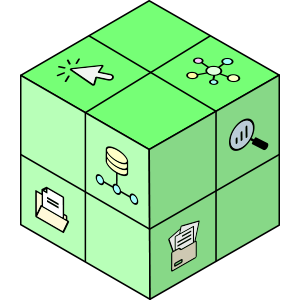
Public Sector AI Registry
The first structured database on the use of artificial intelligence systems in Slovenia’s public sector.

Razkrinkaj.ai (Recognise.ai)
A tool that helps users test their ability to recognise AI-generated content and learn about the risks of its misuse.

Manipulation is not information
An online quiz designed to help users identify manipulative statements in media and politics, which fosters critical thinking skills.

Mini trAIning
A four-part lecture series helping you understand how artificial intelligence works and how it impacts the society we live in.

Recommendations for establishing an AI Registry
A call urging the government and the Ministry of Digital Transformation to create a public registry of AI systems used in public administration for greater transparency, accountability, and public trust in the technology's deployment.
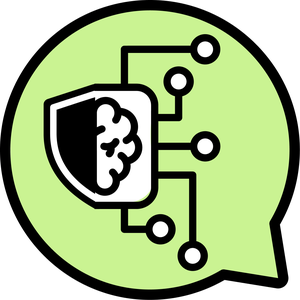
Recommendations for Stronger AI Protections
A policy document for decision-makers highlighting dangerous exceptions in the European AI Act and proposing solutions to safeguard human rights and prevent the technology's misuse.
Projects
All projects

9. December 2025
On 12 November, the Prime Minister surprised the public with news that Slovenia plans to purchase generative AI licences from foreign tech corporations. This move, made without expert consultation and against domestic and EU guidelines, undermines Slovenia's digital sovereignty and our security. Together with over 70 experts, we warn that the state should invest in open, secure and locally developed AI, and we call on the Prime Minister to cancel the public procurement. This text is in Slovenian.

5. December 2025
The Ministry of Digital Transformation recently published new guidelines for the development of IT solutions. We believe the document overlooks key aspects affecting security, the position of users, and service quality. As a result, we propose improvements ranging from stronger rights protection to open source and stakeholder inclusion. Read our comments and recommendations! This text is in Slovenian.

25. November 2025
Proposed amendments to the Slovene Intelligence and Security Agency Act expand surveillance, legalise the use of spyware, and open the door to serious intrusions into privacy and other fundamental rights. Attempts were made to fast-track the bill without proper public debate. Read our opinion and the reasons why we strongly opposed such a solution. This text is in Slovenian.


25. November 2025
Thousands of Slovenes are under surveillance. Are you one of them? We have created an app to help you find out exactly what the Slovene Intelligence and Security Agency knows about you. Try it out and spread the word!

21. November 2025
Proposed legislative changes could dangerously undermine key EU digital rights. The so-called Digital Omnibus agenda prioritizes competitiveness over safety, risking the dismantling of hard-won rights and oversight of dangerous technologies. These changes grant corporations and governments more access to our data while leaving us with less protection. This serves the financial interests of Big Tech, not citizens! This text is in Slovenian.

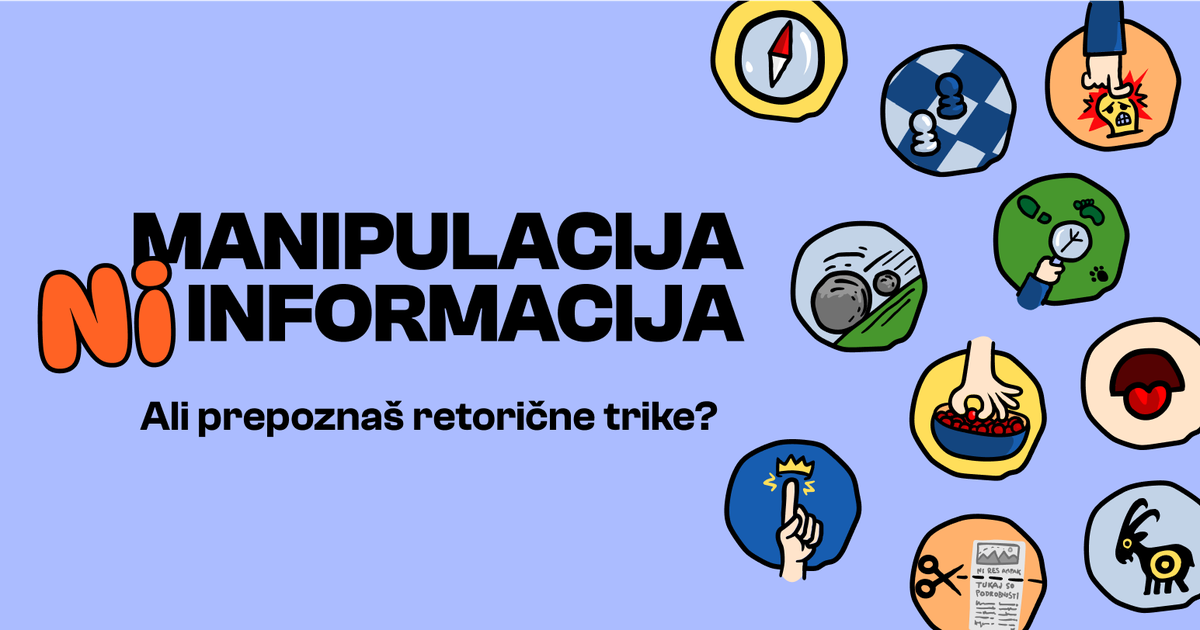
1. October 2025
The online quiz Manipulation is not information helps users identify rhetorical tricks commonly found in media and politics. Every day in October, the site features a high-profile statement, tasking visitors with identifying the manipulative technique being used. Additionally, the website serves as a guide that breaks down eleven of the most common rhetorical tricks, making it a valuable resource for anyone looking to better understand the mechanisms of persuasion and deception.

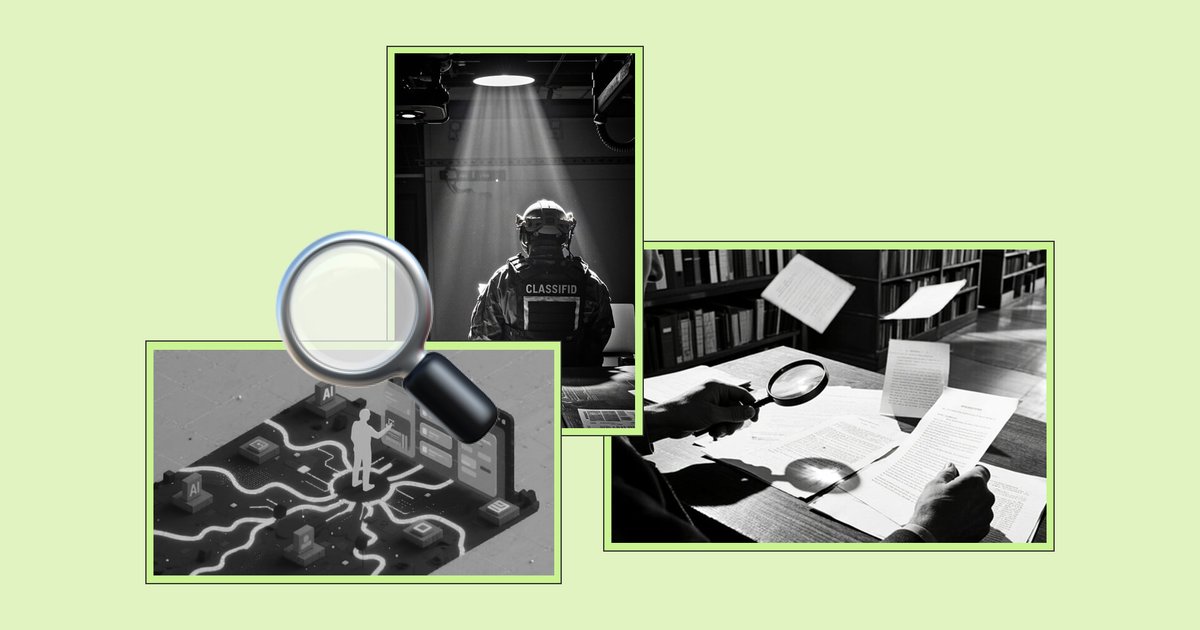
10. September 2025
In light of the exceptional progress in artificial intelligence technologies in recent years, we are seeing increasing interest in this technology among public sector employees. We therefore call on the Ministry of Digital Transformation and the Government to establish a publicly accessible register that will include key information about the AI systems used by public authorities.

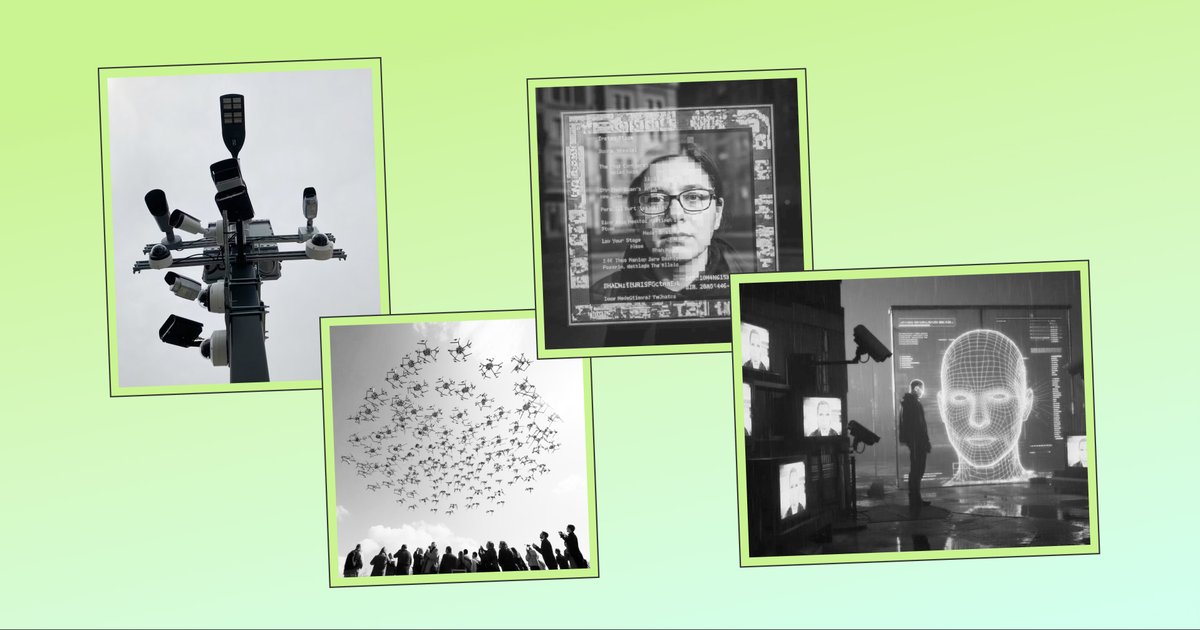
10. September 2025
As the European Artificial Intelligence Act takes effect, exceptions have been introduced that could undermine the protection of fundamental rights. That is why we prepared and addressed to decision-makers a set of recommendations aimed at preventing the weakening of democracy, democratic processes, and the rule of law.
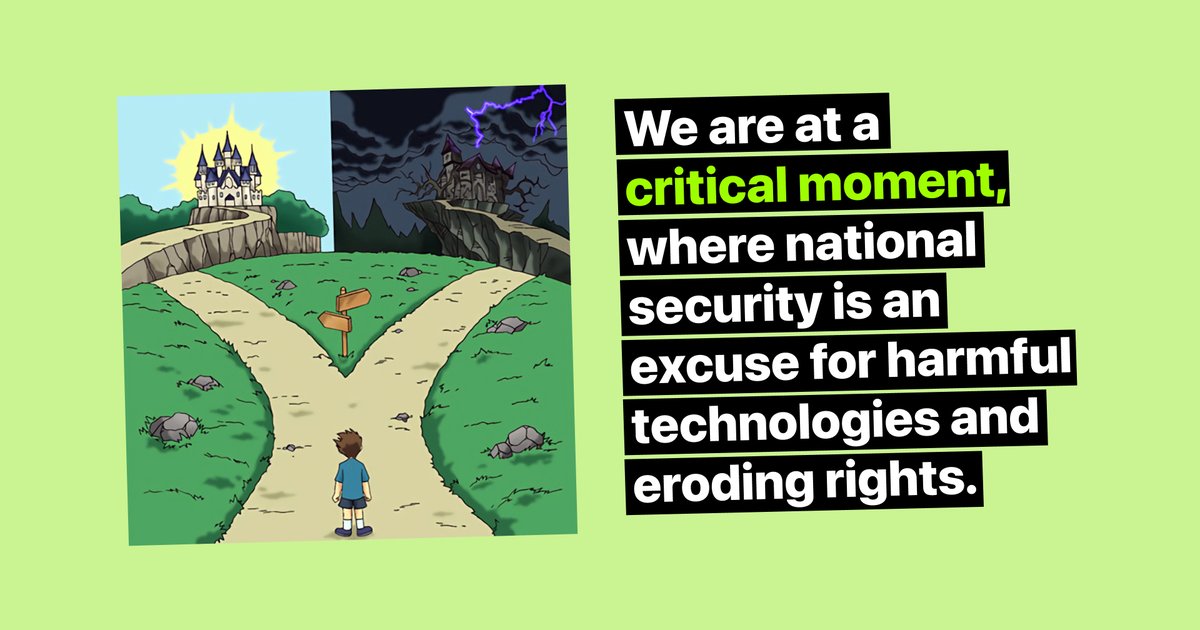
1. August 2025
It's been one year since the AI Act became EU law. Yet as its full enforcement is being prepared, the EU and some member states are already attempting to weaken its hard-won safeguards. What is at stake, and how can we defend our rights from AI-powered repression and surveillance?
In cooperation with Protect Not Surveil and the EDRi AI Act Working Group.

16. July 2025
Together with 52 civil society organisations, experts and academics we have written to the European Commission to express our concerns about growing pressure to suspend or delay the implementation and enforcement of the Artificial Intelligence (AI) Act. Instead of unraveling the EU rulebooks, the Commission should focus on the full implementation and proper enforcement of its rules.
In cooperation with EDRi.

10. July 2025
Given the abundance of information about human rights violations carried out using technological surveillance, one would find it hard to believe that anyone could write positively about this topic. And yet, in the newspaper Delo, we recently came across an editorial by Mojca Pišek titled 'Why Chinese cameras don't bother me'. In our response, we explain why cameras do not represent freedom and security, but rather repression and surveillance. This text is in Slovenian.

14. May 2025
Starting May 27, Facebook and Instagram will use your posts, comments, photos, and other personal data, dating back to the creation of your account, to develop their generative AI models – and they’ll do it without your consent. Learn what you can do to stop it. This text is in Slovenian.

23. April 2025
The Ministry for Digital Transformation’s cautious approach to implementing the European AI Act into national law raises a number of questions and leaves room for ambiguities that could jeopardise the protection of rights. That’s why we are calling for greater transparency and the introduction of clearer appeal and oversight mechanisms, offering concrete proposals to achieve this. This text is in Slovenian.
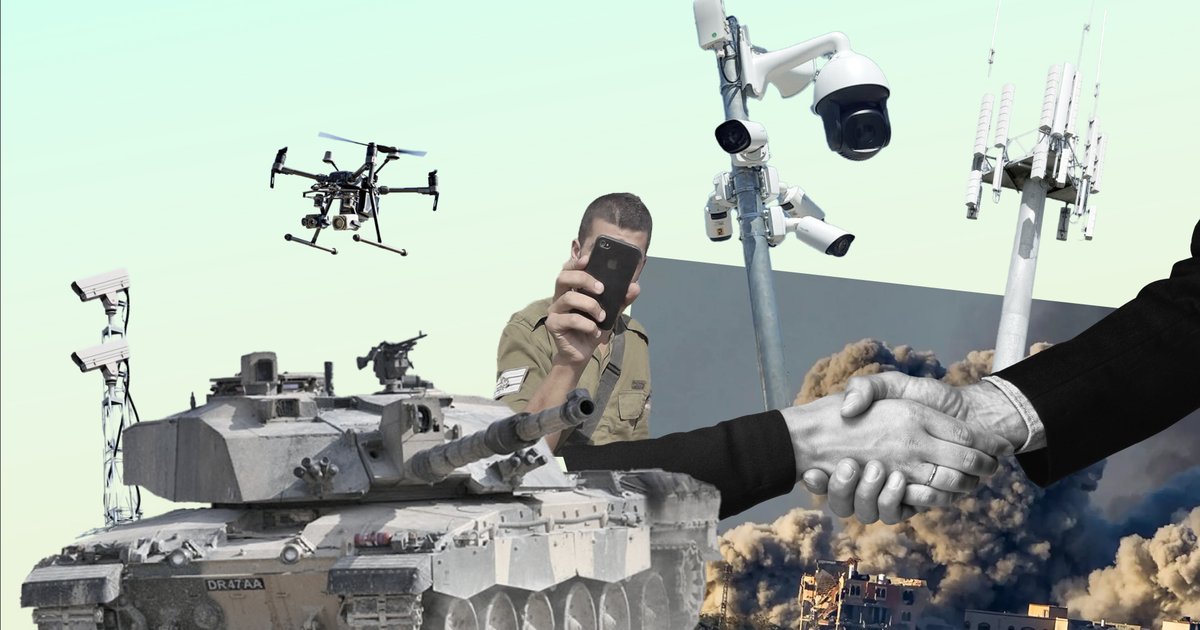
17. April 2025
Israel has since its formation subjected Palestinians to invasive surveillance. Technological advancements, mass data collection, and artificial intelligence have only strengthened this repressive power. Explore how facial recognition systems, spyware, and Israel’s data regime operate – and why holding on to hope still matters – in a piece based on a conversation between Maja and Shir Hever, coordinator of the military embargo campaign within the Boycott, Divestment, Sanctions movement.

16. January 2025
The AI Act still contains serious loopholes that open the door to abuse – particularly in the areas of biometric surveillance and migration. Together with the AI Act civil society coalition and the #ProtectNotSurveil coalition, we call on the European AI Board to ensure that the implementation of the legislation is based on the protection of the rights of all people with its upcoming guidelines!

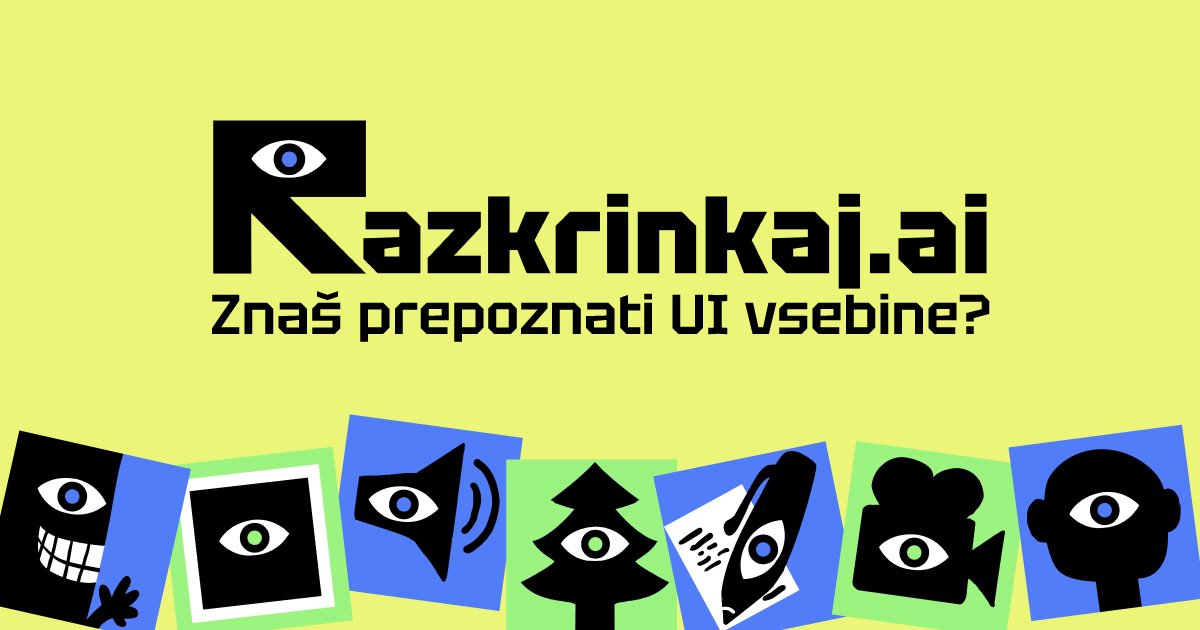
11. December 2024
The rapid development of generative AI is making it increasingly difficult to distinguish between reality and fiction. Digital spaces are full of synthetic content that, at best, seeks to capture our attention and, at worst, aims to deceive us. That’s why we developed Razkrinkaj.ai (or Recognise.ai), a tool designed to test your ability to recognise AI-generated content and educate you on the risks of its misuse.

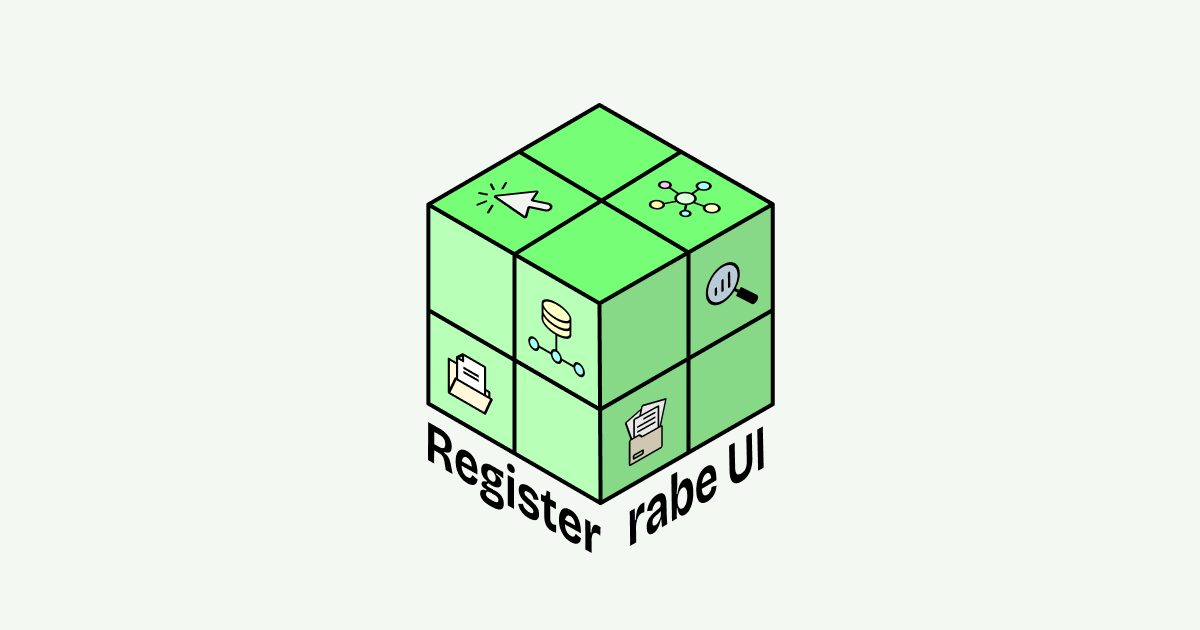
24. October 2024
The development and use of artificial intelligence come with significant risks, so it’s crucial to handle it responsibly and transparently, especially when making decisions that affect people's lives. To address this, we developed the Public Sector AI Registry, the first organised database documenting the use of artificial intelligence systems in the Slovenian public sector. We compiled the data through a combination of research into publicly available sources and requests for public information, and we’re committed to updating the registry regularly.

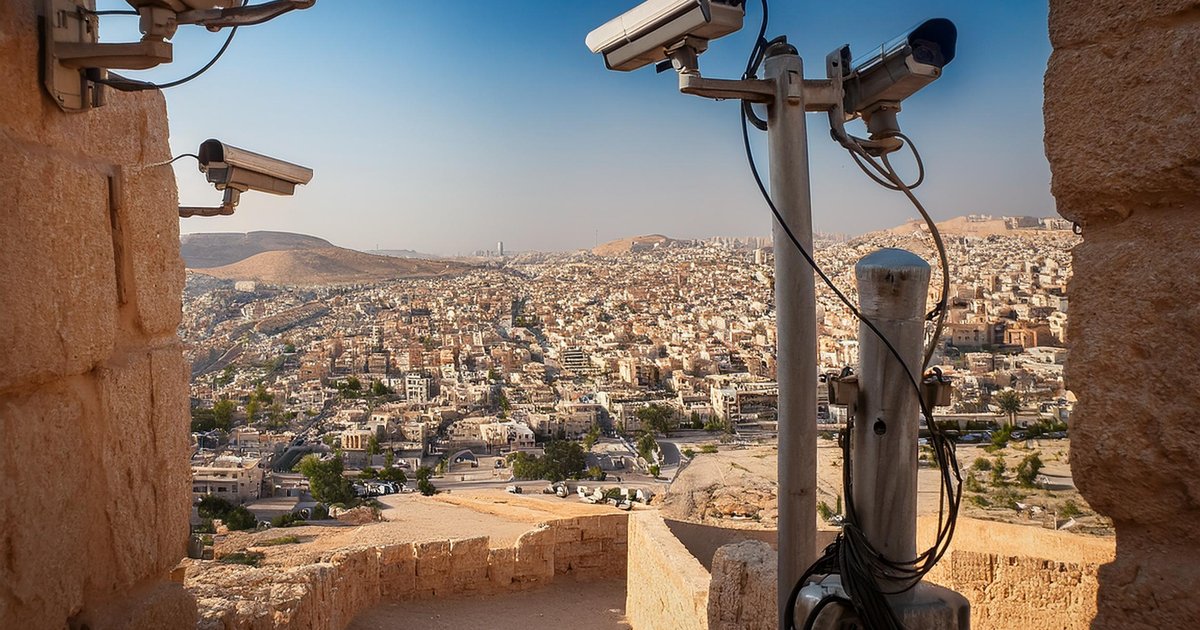
3. September 2024
The use of AI has played an important role in the surveillance, oppression and killings of Palestinians by Israel for many years, and has recently intensified. But the sole aim of the Israeli military-industrial complex is not to kill indiscriminately, but to use the occupied Palestinian territory as a testing ground for weapons and surveillance technologies that are later sold on the global market. We explore what this means for Palestinian fundamental rights and freedoms, the broader struggle against militarisation and the surveillance society. As A. Loewenstein pointed out: "What starts in Palestine never stays there."
